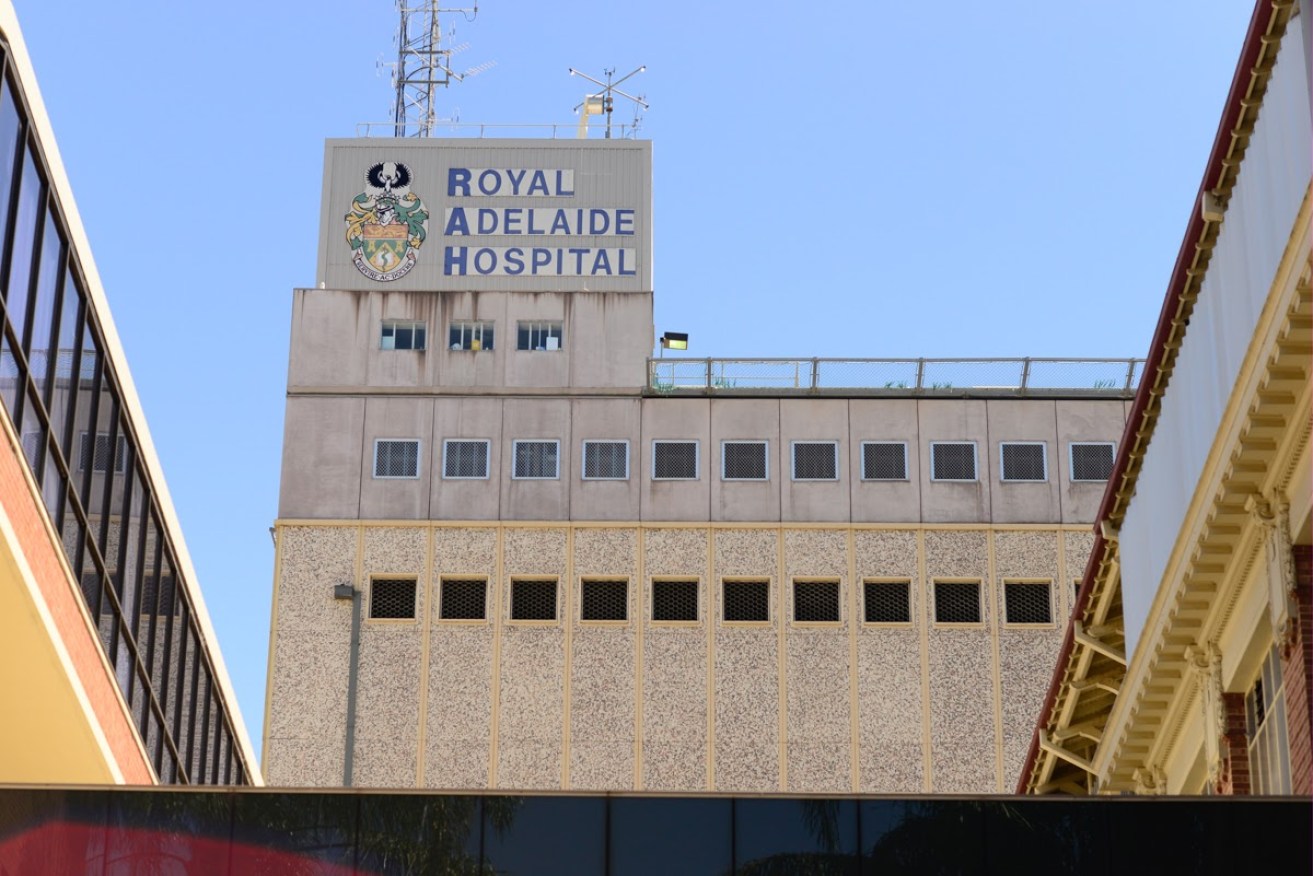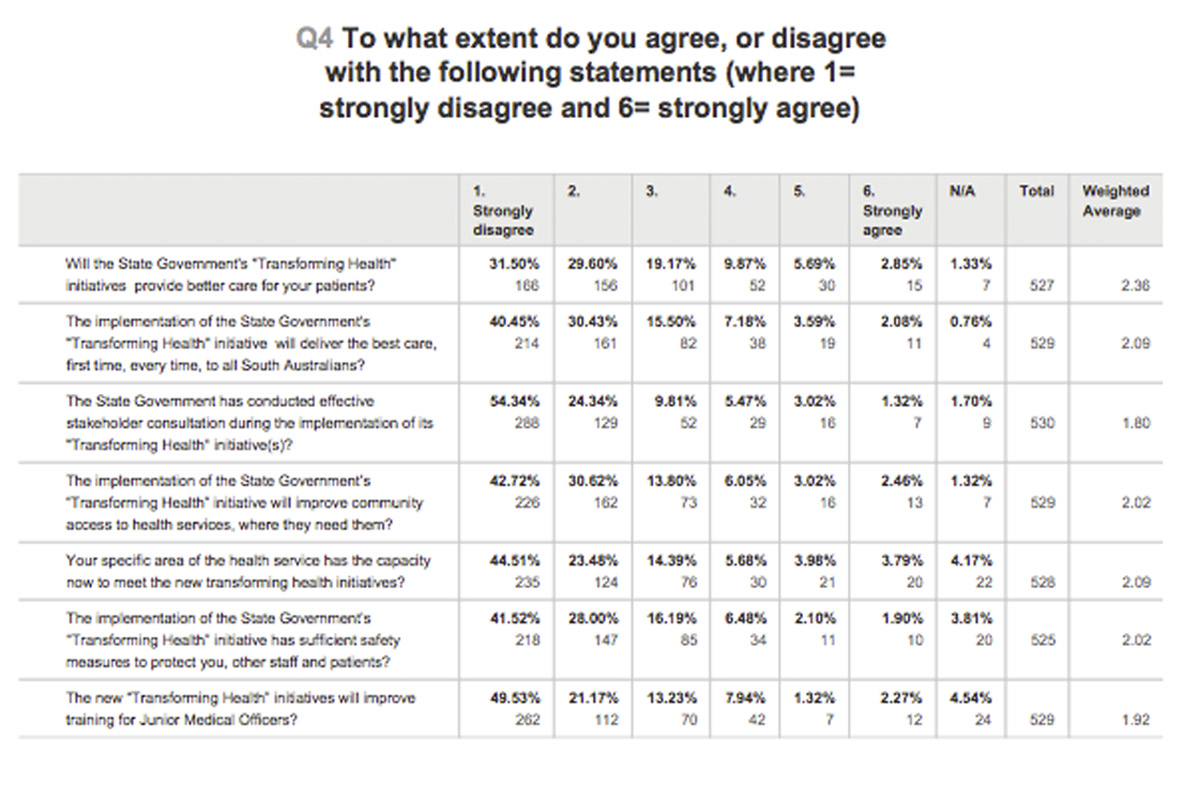Transforming Health “like Adelaide Oval”: Snelling
UPDATED: Health Minister Jack Snelling has compared his contentious Transforming Health reforms to the new Adelaide Oval, arguing a survey of clinicians suggesting widespread opposition to the plan merely suggests a deep-seated fear of change.


Hospital back-up power systems will be reviewed.
InDaily revealed today that a landmark survey of South Australian doctors shows the majority of respondents are opposed to the State Government’s Transforming Health reforms, despite the State Government’s repeated assertions to the contrary.
Most of the respondents to the survey, conducted in recent months, were senior doctors (consultants) and most were from the Central Adelaide Local Health Network – which includes the Royal Adelaide Hospital and the Queen Elizabeth Hospital.
One in five respondents held management roles such as Head of Unit or Clinical Director.
The survey, obtained by InDaily this morning, asked a series of questions about the controversial reform process.
“BETTER CARE?”
61 per cent disagreed or strongly disagreed that the Transforming Health initiatives would “provide better care for (their) patients”.
“SAFETY MEASURES?”
70 per cent disagreed or strongly disagreed that Transforming Health had “sufficient safety measures to protect you, other staff and patients”.
“BEST CARE EVERY TIME?”
71 per cent disagreed or strongly disagreed that Transforming Health would “deliver the best care, first time, every time, to all South Australians” (as per its slogan).
“EFFECTIVE CONSULTATION?”
79 per cent disagreed or strongly disagreed that the State Government had conducted “effective stakeholder consultation” during the implementation of Transforming Health.
And almost 90 per cent of respondents said they did not feel they had “an ability to influence the outcomes of the Transforming Health reforms.
“IMPROVE SERVICES?”
73 per cent disagreed or strongly disagreed that Transforming Health would “improve community access to health services, where they need them”.
AMA President Dr. Janice Fletcher said in a statement this afternoon that: “Transforming Health’s ambition has been a bold one, and certainly the fact that it was born out of a response to federal budget cuts was a concern from the start”.
“However, doctors were ready to contribute and help the government get this right,” she said.
“Unfortunately what we have been hearing, and what this survey underlines, is that while there is support for some aspects, the medical profession has serious concerns about the impacts and implementation of the Transforming Health proposals.”
SASMOA President Dr David Pope said that doctors’ concerns “have not been listened to, and that they are afraid for the future, for their patients and the communities they serve”.
“They are telling us that consultation has been inadequate, in some cases insincere, and in some cases completely absent,” he said.
Fletcher said there was “significant concern that the government is quite simply trying to do ‘too much, too soon’ in tackling this major reform with its reconfiguration of hospital services, at the same time as the move to the new RAH and the introduction of the EPAS patient administration and medical record system”.
The survey includes hundreds of comments from anonymous respondents, including:
“Disappointed to hear statements such as “95% of clinicians support transforming health” – it exemplifies the complete lack of evidence base that underpins the whole process of transforming health.”
“I don’t understand the logic behind this – why reduce bed numbers and put more pressure on staff? Why spend money building new infrastructure when there are hospitals in place that could simply be refurbished, and better supply their local area?”
“The consultation process seems to have been lacking – at the junior level, opportunities for involvement have been limited and when concerns have been raised at senior levels, they have been largely dismissed.”
“There were ample opportunities involved to be engaged and provide feedback, but none of that changed the pre-determined outcome …”
“Excellent proposal – poor implementation.”
“Transforming health is rushed, poorly planned, selective in representation / consultation and high risk… The combination of nRAH, Transforming Health and EPAS is high risk.”
But not all of the comments were critical:
“Consolidation of Services will improve outcomes. Adelaide has too many hospitals.”
“I agree with the principle of centralisation of care in major centres. The biggest issue is with how it is implemented.”
The survey follows the release of a survey of just under half of SA’s surgeons earlier this year that found:
81 per cent had concerns about patient access to surgical services.
84 per cent “have major concerns and do not support the implementation process“.
71 per cent had “concerns with patient safety“.
74 per cent were concerned with the program’s impact on training for future surgeons.
The chair of the Royal Australasian College of Surgeons’ South Australian Regional Committee, Dr Sonja Latzel, said that “the purpose of the survey was to test figures from Dr Dorothy Keefe (Clinical Ambassador for Transforming Health), which suggested that Transforming Health had the support of 95% of clinicians within the South Australian health sector”.
“We wanted to make sure that these claims accurately represented the views of our own surgical Fellowship.
“… Our intention was not to embarrass the government in any way, we just wanted to ensure that we had a better understanding of how our surgeons felt about these changes, so that we could begin to advocate more effectively on their behalf.
“To date surgeons who have expressed their concerns regarding the Transforming Health changes have been characterised as having a minority view and speaking out of self–interest.
“The results of our survey indicate that this was not the case.”
Snelling likened the Transforming Health process to the Adelaide Oval rebuild, which initially attracted entrenched skepticism but has been roundly celebrated since its opening in 2014.
“Disruptive change like this, people are going to find confronting,” Snelling said.
“If you’d gone through a similar [survey] process with Adelaide Oval, you’d have gotten very similar results.”
He also attacked the survey itself, declaring: “It’s not exactly what you’d call a scientific survey.”
“This sort of method where you basically invite responses, I’d suggest the way it’s been done would skew the results,” he said.
He argued the number of respondents represented “only about 1.5 per cent of clinicians who work in SA our [public] hospitals”.
“But having said that, change is always hard… there are always going to be people who are unsettled and anxious about change, so the results don’t particularly surprise me,” he said.
– with Tom Richardson





